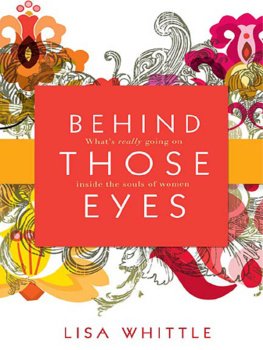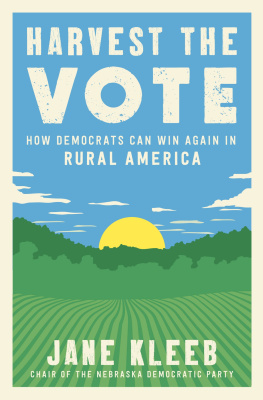PEOPLE, MARKETS, GOODS:
ECONOMIES AND SOCIETIES IN HISTORY
Volume
Servants in Rural Europe
This is the first book to survey the experience of servants in rural Europe from the fifteenth to the nineteenth century. Live-in servants were a distinctive element of early modern society. They were typically young adults aged between 16 and 24 who lived and worked in other peoples households before marriage. Servants tended to be employed for long periods, several months to years at a time, and were paid with food and lodging as well as cash wages. Both women and men worked as servants in large numbers. Unlike domestic servants in towns and wealthy households, rural servants typically worked on farms and were an important element of the agricultural workforce. Historians have viewed service as a distinct life-cycle stage between childhood and marriage. It brought both freedom and servility for young people. It allowed them to leave home and earn a living before marriage, whilst learning a range of agricultural and craft skills which reduced their dependence on their parents and increased their choice in marriage partners. Still, servants had limited rights: they were under the authority of their employer, with a similar legal status to children. In many countries the employment of servants was tightly controlled by law. Servants could demand their wages, and leave when the contract ended, but had to work long hours and had little say in their work tasks during employment. While some servants effectively became family members, trusted and cared for, others were abused physically and sexually by their employers. This collection features a range of methodologies, reflecting the variety of source materials and approaches available to historians of this topic in a range of European countries and time periods. Nonetheless, it demonstrates the strong common themes that emerge from studying servants and will be of particular interest to historians of work, gender, the family, agriculture, economic development, youth and social structure
JANE WHITTLE is Professor of Rural History at the University of Exeter.
Contributors: CHRISTINE FERTIG, JEREMY HAYHOE, SARAH HOLLAND, THIJS LAMBRECHT, CHARMIAN MANSELL, HANNE STHUS, RICHARD PAPING, CRISTINA PRYTZ, RAFFAELLA SARTI, CAROLINA UPPENBERG, LIES VERVAET, JANE WHITTLE.
PEOPLE, MARKETS, GOODS:
ECONOMIES AND SOCIETIES IN HISTORY
ISSN: 2051-7467
Series editors
Barry Doyle University of Huddersfield
Steve Hindle The Huntington Library
Jane Humphries University of Oxford
Willem M. Jongman University of Groningen
Catherine Schenk University of Glasgow
The interactions of economy and society, people and goods, transactions and actions are at the root of most human behaviours. Economic and social historians are participants in the same conversation about how markets have developed historically and how they have been constituted by economic actors and agencies in various social, institutional and geographical contexts. New debates now underpin much research in economic and social, cultural, demographic, urban and political history. Their themes have enduring resonance financial stability and instability, the costs of health and welfare, the implications of poverty and riches, flows of trade and the centrality of communications. This paperback series aims to attract historians interested in economics and economists with an interest in history by publishing high quality, cutting edge academic research in the broad field of economic and social history from the late medieval/early modern period to the present day. It encourages the interaction of qualitative and quantitative methods through both excellent monographs and collections offering path-breaking overviews of key research concerns. Taking as its benchmark international relevance and excellence it is open to scholars and subjects of any geographical areas from the case study to the multi-nation comparison.
PREVIOUSLY PUBLISHED TITLES IN THE SERIES ARE
LISTED AT THE BACK OF THIS VOLUME
Contents
Jane Whittle
Lies Vervaet
Thijs Lambrecht
Jane Whittle
Charmian Mansell
Cristina Prytz
Hanne sthus
Christine Fertig
Jeremy Hayhoe
Carolina Uppenberg
Sarah Holland
Richard Paping
Raffaella Sarti
Contributors
is assistant professor at the University of Muenster, Germany. In her Ph.D. she studied families and social networks in north-western German rural society between 1750 and 1900. She has published on rural history, history of the family, kinship and godparents, credit markets, intergenerational relations and on global trade and exotic substances in early modern Europe.
, Associate Professor at the Universit de Moncton in New Brunswick, Canada, is an historian of eighteenth-century France. He recently published Strangers and Neighbours: Rural Migration in Eighteenth-Century Northern Burgundy (Toronto, 2016). His current work on agricultural improvement in the eighteenth century involves the measurement of crop yields from probate inventories and related succession documents.
is a historian of modern Britain, currently lecturing at the University of Nottingham. Her work has focused on the development of rural communities and the roles of different social groups within rural society including shared and contested identities. She has also explored the relationship between town and country, recently publishing a chapter in RuralUrban Relationships in the Nineteenth Century: Uneasy Neighbours? (2016). Her current work explores the relationship between farming and mental health.
is lecturer in Rural History at Ghent University. He has published on the history of labour markets, credit markets and poor relief in the Southern Low Countries during the early modern period. He is currently working on a comparative analysis of poor relief and agrarian change in France, England and the Low Countries from the late medieval period to the early nineteenth century.
is currently an Economic History Society Research Fellow at the Institute of Historical Research and the University of Exeter. Her Ph.D., completed at Exeter in 2017, investigates the experiences of female servants in the early modern community using church court depositions.
received her Ph.D. from the European University Institute in Florence in 2013 and has been Associate Professor at Sogn og Fjordane University College, Norway. In her research she has investigated the relationship between masters and domestic servants in Denmark and Norway.
is senior lecturer in Economic and Social History at the University of Groningen, the Netherlands. He is interested in regional rural history and historical demography between the sixteenth and twentieth centuries, in particular in long-term developments in the labour market, economic growth, social structure and social mobility, and has contributed, among others, to several CORN project publications.











